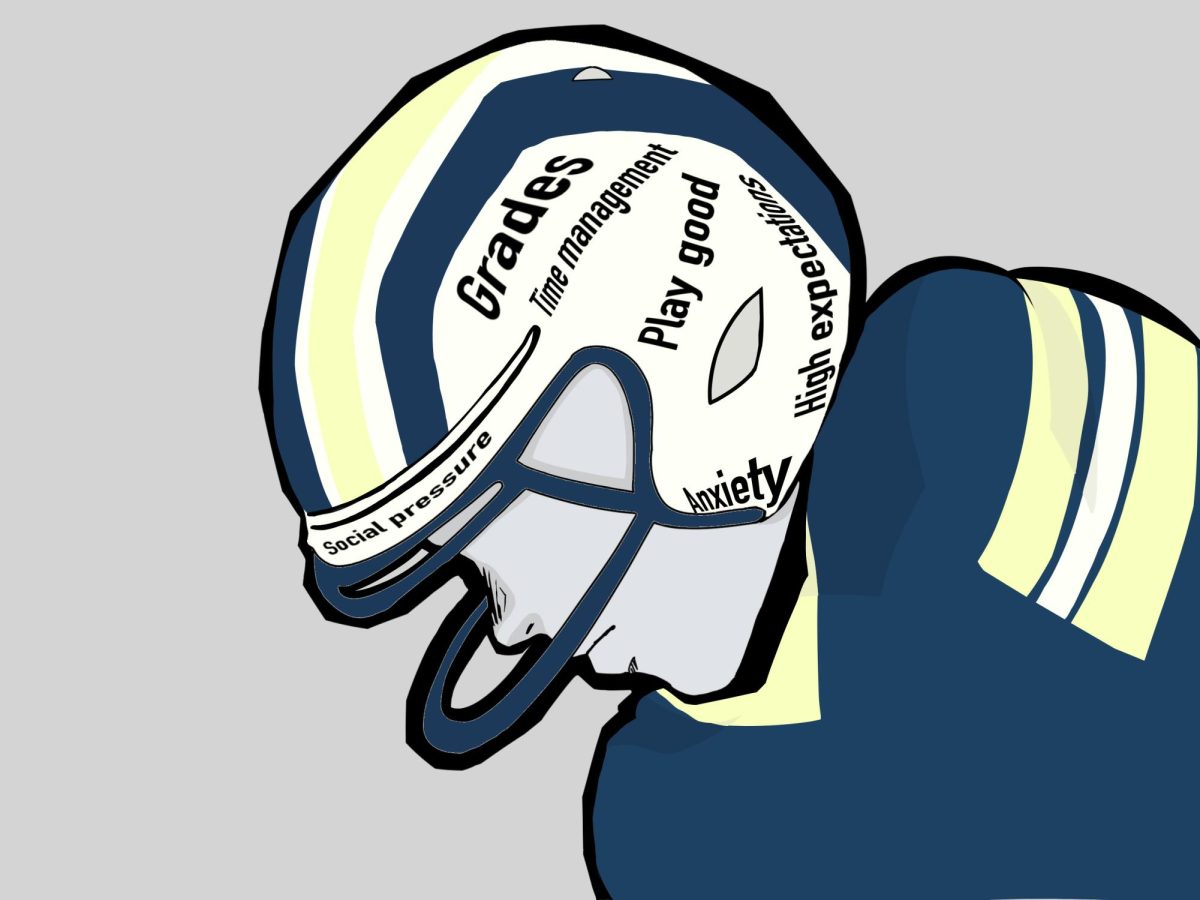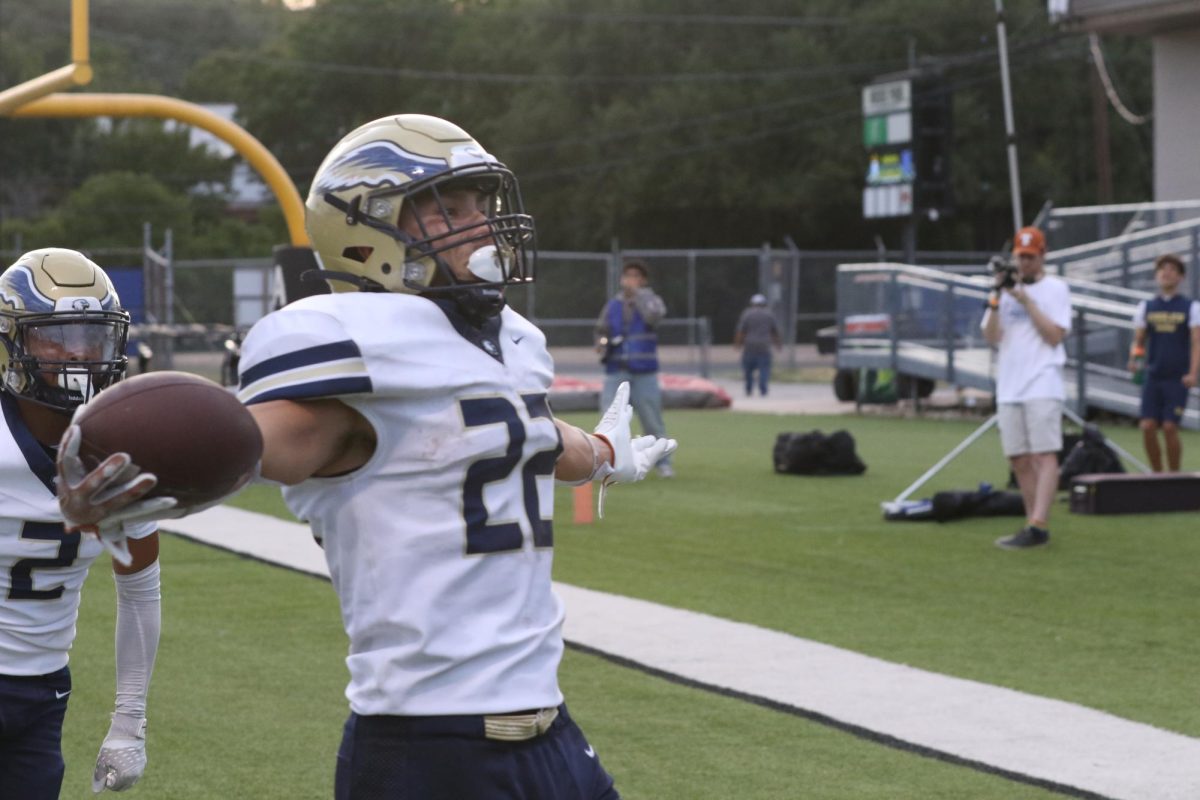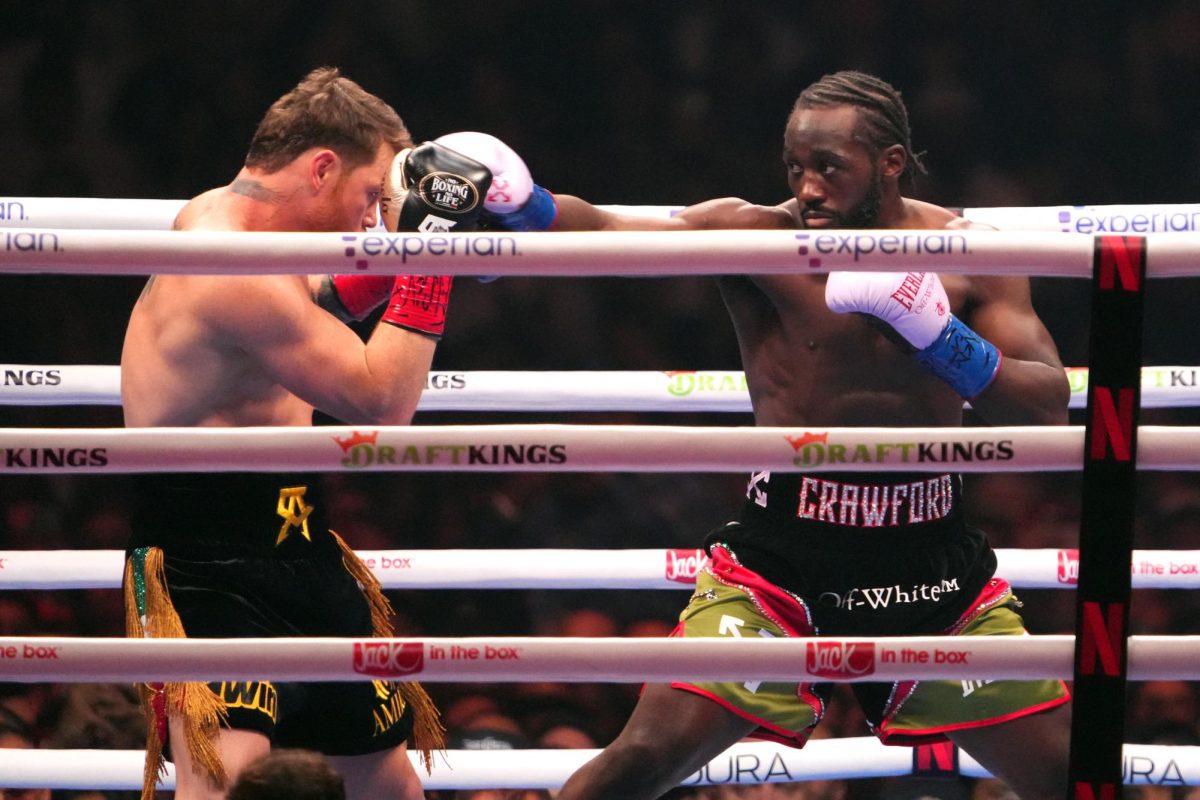When the pressure is on, it can be hard to fight off negative thoughts when it’s game day and it’s time to hit the field or court.
Akins athletes are susceptible to mental health challenges and may face unique stressors such as pressure from coaches, fans, teammates, and school.
Mental illness refers to a wide range of mental health conditions and disorders that affect your mood, thinking, and behavior.
Cross Country Head Coach Caleb Calderon said he has helped his athletes deal with their mental health challenges caused by the stress of being a student athlete.
“Yeah, the mental health issues that have been laid out pretty much are like trying to balance between academic pressure, whether they’re like, in higher-level honors classes or AP classes, and still trying to compete, whether it’s like cross country or track,” he said.’
It can be difficult to see signs of an athlete struggling with mental health. Mental health issues can affect people differently, and athletes may be good at hiding signs of mental challenges. Many athletes pride themselves on being tough, which can make it difficult when they are struggling with stress.
Senior Alonzo Moore, a linebacker for the varsity football team, said he faced his share of stress as a student athlete.
‘’I was met with a lot of mental battles like fitting in and trying to impress our coaches,” Moore said.
This year was Moore’s first year at the school, and new to the varsity football team. In District 26- 6A, Akins sports programs face many challenges while facing off against wealthy athletic programs at Westlake, Lake Travis, Dripping Springs, and Bowie. All of these teams are perennial contenders for state championships in various sports.
This can cause some athletes to experience anxiety before big games.
“I would get some anxiety before the game or during warmups, and to clear my mind, I would just close my eyes and breathe to calm myself down,” he said.
But playing these teams comes with extreme difficulty in winning against them. This leads our school to have a lower win record than most schools in the district. This inevitably leads to negative comments made by students of opposing teams and sometimes even from non-athlete Akins students, as well.
“I think it’s hateful and negative. Some people don’t know what’s going on inside the team and the struggles some of us go through in our daily lives,” Moore said.
Athletic success requires physical training and knowledge of your sport. But to perform at their best, they also must nurture their mental health, Varsity Football Coach Joey Saxe said.
“A lot of it stems from the demands that are kind of placed on them, and like high expectations not to let people down,” he said. “I think that’s where some of that pressure they feel comes from.”
Many athletes worry that admitting that they have anxiety or mental issues is a sign of weakness.
“I think the big thing is you’ve got to talk to somebody,” Saxe said. “You know, if you try to carry that around with you all day long, it just weighs you down. No one can help you unless they know how to help you. Our kids know that the doors are always open and that they can come to talk to us about anything.”
Coach Brandon Gonzales, “who coaches freshmen-level football said, it’s essnetial for athletes struggling with mental health concerns to talk to a trusted adult”.
“Talk to an adult, talk to somebody whom they feel comfortable with. I know that was my problem; I never talked to anyone,” he said”. “So nobody knew anything that I wanted, which later on, would be a problem because there would be times when I was so mad and would say something, and then realize in retrospect, I would think ‘Oh, I shouldn’t have said that.’ So, yeah, going to talk to somebody about it like a counselor, see what options they have. To talk to somebody who has experience in that area, or that’s more, you know, that’s more important to you.”
Junior Adeleah Cardenas, who plays on the varsity girls basketball team, has faced some mental health challenges during the season.
“Multitasking, trying to finish doing all my work on time, and not being able to stay up late at night because of morning practice. In my opinion, it’s easy to fall behind on schoolwork,” she said.
Mental health is important for a number of reasons. It’s essential for our overall well-being. Just like physical health, mental health is a vital part of our lives. Unfortunately, mental health is often overlooked by other issues, such as academics or athletics.
In an article published on the website for the Mass General Brigham hospital system, Rachel Vanderkruik encourages athletes to focus on their mental health and speak up when they need help.
“There are many aspects of sport that can benefit mental health, including physical activity and social connections to teammates and a sport community,” Dr. Vanderkruik wrote. “However, the same risk factors that exist for any kind of mental illness certainly apply for athletes. For example, you may be more at risk if you have a personal or family history of mental illness, social isolation, or significant life stressors.”








